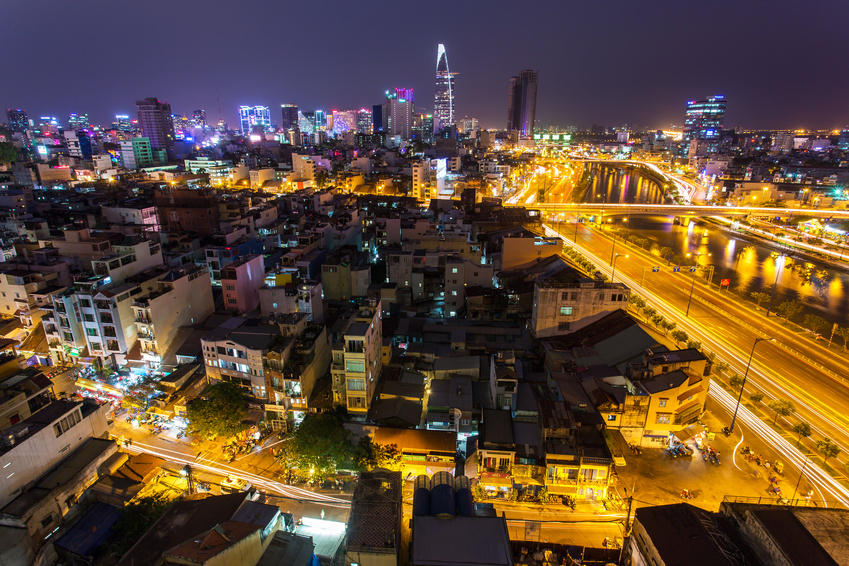In brief
The Vietnamese government recently issued Decree No. 05/2021/ND-CP (“Decree No. 05“)1 on the management and operation of airports and airfields in Vietnam, replacing Decree No. 102/2015/ND-CP (“Decree No. 102“).2 The new decree comes into effect on 10 March 2021, and provides for, among other things, new regulations regarding the investment and operation of airport and airfield projects in Vietnam.
In the context of the global shift from government ownership and operation to private participation in the airport and aviation infrastructure sector, and responding to increasing calls to promote private sector investments in airports in Vietnam, Decree No. 05 provides certain foundations to facilitate new opportunities for private investment in airports and airfields in Vietnam.
However, there are certain legal issues that will need to be considered in relation to airport concessions, depending on whether the legal and contractual frameworks involve public-private partnership (PPP) or private investment structures on a project-by-project basis.
Please do not hesitate to contact us if you would like to understand more about:
- Further details of the legal frameworks on airport infrastructure projects in Vietnam
- Opportunities for private investors to invest in this area, as well as necessary steps and best practices to prepare
- Key legal, project and structuring issues and challenges and legal solutions for investments in infrastructure projects in Vietnam
Concession for supply of aviation services at airports and airfields
In Vietnam, the grantor is an airport enterprise that has been issued an airport operation business license by the Ministry of Transport (MOT) to manage and operate an airport and airfield. An airport enterprise, as the grantor, may grant or hire another licensed aviation services provider at the airport and airfield under a concession contractual arrangement. Decree No. 05 provides for an exhaustive list of aviation services to be provided at airports and airfields, as follows:
- Passenger terminal operation service
- Airfield operation service
- Cargo terminal and warehouse operation service
- Airline meal service
- Aviation petrol supply service
- Ground commercial service of technical activities
- Repair and maintenance services for aircrafts and aircraft equipment
An airport enterprise may enter into a concession arrangement with a licensed aviation services provider, under which they can agree on the rights and obligations of each party, on the concession fees, and on the term of concession agreement. The concession agreement must ensure security, safety, service quality, environmental protections and compliance with the operation conditions at airports and airfields. The aviation services provider will pay the concession fee to the airport enterprise according to regulations of the MOT.
Further, the aviation services provider, which may invest in the construction of works for the provision of relevant services, must be licensed by the MOT’s Civil Aviation Authority of Vietnam.
In cases where the infrastructure of the provider is outside of the airport or airfield boundary but the service delivery process is directly related to regulations on aviation security and safety at airports or airfields, the provider is still required to be licensed by the MOT’s Civil Aviation Authority of Vietnam to supply the proposed services.
Concession for operation of airports and airfields
Under Decree No. 05, an airport enterprise may either directly manage and operate the infrastructure, equipment and facilities at airports/airfields or grant/hire other organizations to directly operate the airports/airfields, in which case the airport enterprise will still be held responsible before the law for the management and operation of the airports/airfields. However, this provision serves mostly as a general basis for concession arrangements for operation of airports and airfields. More detailed regulations to exercise the concession (e.g., scope of airport/airfield management and operation, contractual framework of concession agreement) have yet to be provided in Decree No. 05.
Investment and construction of airports and airfields
An airport enterprise is responsible for investing, upgrading and expanding essential construction works at the airports/airfields to ensure consistency and synchronization in their management, operation and maintenance. Nevertheless, if the airport enterprise is incapable of investing in accordance with the airport development plan approved by the authorized state agencies, the MOT may invite other investors to participate following appropriate investment forms as per applicable tendering regulations.
The MOT will carry out investor selection in accordance with applicable tendering laws for investment in construction works other than essential construction works, state management agency headquarters or technical facilities for provision of air navigation services.
For airports invested under the PPP model, if the investment in construction works for the development and expansion of airports does not fall under the scope of the existing PPP project contract, the construction works will be carried out either under a PPP arrangement or other investment models in accordance with applicable laws.
For existing construction works with remaining land allocation or land lease term, the operators of the construction works may invest in, renovate and expand the works without changing the land use purpose and within the boundaries of land use for the existing works, in accordance with the approved airport and airfield planning.
Other guidelines
In addition, Decree No. 05 provides for new guidelines on the following matters to facilitate implementation:
- An airline itself may provide aviation services at airports/airfields if it satisfies the following conditions:
- It has an organized structure to ensure that the provision of services directly related to aviation operations at airports and airfields, as well as qualified staff, meet the professional requirements at airports and airfields.
- It has the required equipment and meet other conditions to ensure aviation safety and security.
- The services to be provided are registered in the aircraft operator certificate of the airline.
- An airport/airfield operator, being granted the airport/airfield operation license, may directly operate airport infrastructure and other essential construction works in airports/airfields, except for works operated by the provider of air navigation services. An airport/airfield operator must maintain its eligibility and take responsibility before the laws and before the airport enterprise for its lawful operation.
- A construction works operator at an airport/airfield may directly manage and operate construction works. It must ensure quality service within its management scope as well as proper coordination with the airport/airfield operators to ensure the quality of operation, security, safety and environmental protection at the airport/airfield.
- The provision of non-aviation services at airports must meet the minimum service requirements and be in line with the nature, scale and conditions of the airport infrastructure. The selection of non-airport service providers at airports must comply with the principles of promoting competition and antitrust.
- Airport enterprises or operators of construction works at airports/airfields must comply with the law on advertising and the law on construction when carrying out construction and installation of advertising works at airports/airfields. The regulations for construction and installation of advertising works at airports/airfields include, among others, requirements that advertising works must not interfere with flight activities and that placement of advertising billboards must not affect aviation safety and security, fire prevention and fighting, traffic safety, or obstruct the flow of people and vehicles.
1 Decree No. 05/2021/ND-CP of the Government of Vietnam dated 25 January 2021 on management and operation of airports and airfields.
2 Decree No. 102/2015/ND-CP of the Government of Vietnam dated 20 October 2015 on management and operation of airports and airfields, as amended and supplemented by Decree No. 92/2016/ND-CP dated 1 July 2016 and Decree No. 44/2018/ND-CP dated 13 March 2018.




